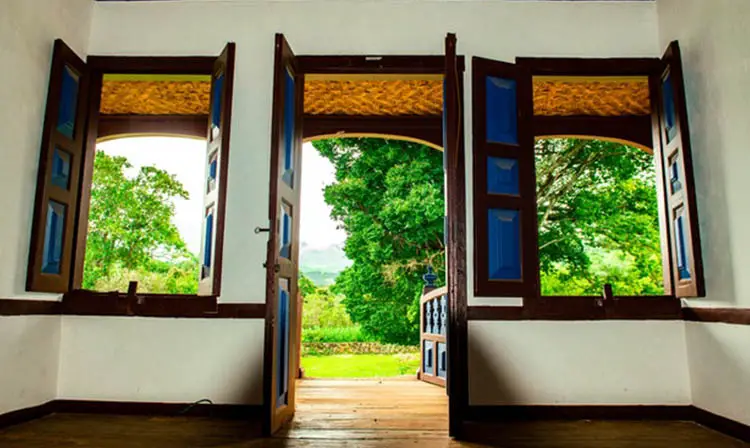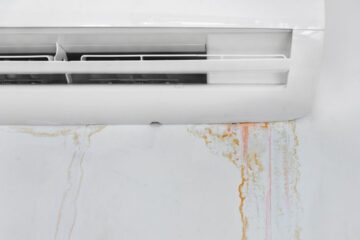Does air conditioner kill mosquitoes?
Mosquitoes are pests for everyone when they go hiking outdoors. These pesky and irritating insects thrive in hot and humid conditions. You can’t really find them floating in the air to bite you when you’re out skiing. It’s just not in their biological nature. Air conditioner provides us with a cooling effect that is not what the mosquitoes would like. The intensity may not be as cold as winter. But, it does raise an interesting question. Does air conditioner kill mosquitoes?
No, the air conditioner does not kill mosquitoes. Mosquitoes will die if the temperature is below 50°F (10°C). The lowest temperature that an air conditioner can go is usually at 60°F. However at 60°F, mosquitoes become inactive. If this prolongs, the mosquito will eventually die.
It is less likely we will be sleeping with the lowest air conditioner temperature. So, setting the AC at the coldest temperature is less likely to be a practical solution.
On the bright side, turning on the air conditioner does help to discourage mosquito activity, allowing you to reap the benefits of sleeping in AC.
How does the air conditioner repel mosquitoes?

Air conditioner does more than just to keep you comfortable at the right temperature. It can also help to deter mosquitoes in your house!
Inhibits mosquito activity
Mosquitoes are cold-blooded insects. It cannot regulate its own body temperature. Therefore, it is very sensitive to the surrounding temperature.
Mosquitoes become more energetic as temperature rises. 80°F is the best temperature for them to go all out hyperactive.
However, when you turn on the aircon, the room temperature drops. The temperature range falls into that that mosquitoes dislike. Therefore, they become less active and less likely to bite.
Reduce humidity
Other than temperature, the other factors that mosquitoes love to dwell in are places with high humidity. It’s their nature to be attracted to such a condition as it usually tells them that there’s standing water that is suitable for them to breed.
Air conditioner works by removing humidity from the air and allowing cooler air to vent through the indoor unit. Just by turning on the aircond, the indoor humidity level drops to a less favorable liking for the mosquitoes.
Air movement
Mosquitoes identify their prey by detecting the release of carbon dioxide and other odorants. Our normal respiration itself releases this carbon dioxide gas. That’s how these pests are able to detect our presence and know that we are food to them.
By turning on the air conditioner, the cool and dry air is circulated around the room. This disrupts the trail of carbon dioxide gas that we release. In other words, it makes it hard for the mosquitoes to ‘see’ us, let alone to bite us.
This works greatly if you turn on the fan as well. The air circulation gets to a higher level that disorientates the mosquitoes further. Switching the fan also helps your room to achieve the desired cooling level faster and more evenly distributed throughout the space.
Sealed environment
It is common practice to keep all the doors and windows shut to prevent the cold air from escaping. This is crucial to retain the cool temperature as well as to reduce energy consumption by the AC.
This practice creates a sealed environment that is hard for mosquitoes to make its way into your living space. You get to live cool and comfy on the inside. The mosquitoes are kept outside.
Just nice.
How to get rid of mosquitoes inside the house? (Backed with research)
If somehow you find some mosquitoes buzzing their way in your house, there are a few things that you can do to get rid of them. Although using mosquito spray is one way, it usually contains harmful chemicals that we don’t want to breathe in or get into our drinking water. Here’s other ways to get rid of the mosquitoes:
1. Close the windows and doors

The mosquitoes get indoors from somewhere. These obvious entry points need to be closed to prevent them from coming in before any other measures take place.
After you close the windows and door, check for gaps. Those annoying mosquitoes still can get through the little opening between the door and the floor. Whichever the part where you can see light coming in poses a risk for mosquito entry.
Get door strips to close the gap as much as possible. It’s not expensive to buy one. Just need a little patience to stick it right. With this, it also can help keep the cool air in the room. The seal also provides insulation against noise, providing greater comfort.
If necessary, get mosquito screens or nets for the windows. Depending on the type of window your house has, this may not be necessary.
Window screens are easily available in your local hardware store. Just be sure to get good quality ones. Set it up properly and you’re good.
Any tear on the screen will allow insects to come in. So, check thoroughly for any holes around it especially after a storm.
2. Use mosquito traps
Mosquito trap is a setup that contains a lure and a trapping container. The lure can be the release of carbon dioxide gas that mosquitoes are attracted to. When the mosquitoes detect the lure, it will fly over and eventually get trapped in the container compartment of the trap.
The use of mosquito traps is only effective if they are placed correctly. Here’s a few factors to consider before placing your trap.
Put the mosquito trap upwind – the point of the trap is to let the mosquitoes detect the lure. Mosquitoes usually fly upwind to look for their prey. After it’s fed, it will usually fly downwind and rest.
Place the trap in a shady and humid spot – mosquitoes love shade and humidity. It will tend to stay away from hot or sunny areas.
Put the trap in an open area – carbon dioxide from the trap is denser and will flow downwards. Therefore, it should get enough space for the gas to cover the area. Any obstructions will impede the spread of the gas, reducing it’s spread for mosquitoes to detect.
Ultrasonic mosquito repeller doesn’t work to repel them
Contrary to what is heavily advertised, ultrasonic repeller does not work to repel mosquitoes. These devices claim to drive the pests away by emitting high-frequency sounds that are not audible to the human ear. However, there is no scientific evidence to prove that it works.
3. Use essential oils from mosquito repellent plants

There’s a lot of bloggers on the Internet that claim that growing mosquito repellent plants such as lemongrass, citronella, peppermint and catnip in the garden can help repel mosquitoes. Sadly to say that there’s no evidence showing that it works to prevent mosquitoes from biting you just because you have these plants anywhere in the garden.
What is actually happening is probably deterring mosquitoes from approaching the plant. It can still fly around the air space and pay a visit to your house. So, get some tea and cookies ready.
What really does work is actually using the extracts of these plants. In other words, their essential oils deter mosquitoes. These plants have been used traditionally by many generations before.
The essential oils are applied to the skin, creating a barrier that masks your scent from being detected by the mosquito. However, the downside to this is that it wears off quickly. You will have to reapply the essential oil every few hours. There’s also the risk of skin irritation that affects certain people that you need to consider as well.
Citronella candles does not work to deter mosquitoes
Not all insect repellent based products work to repel mosquitoes. One such item is the citronella candles. When the candle is burned, the release of the scent is nowhere near effective to repel them.
So when you’re thinking of getting scented candles, they’re most probably nice for spa treatment and relaxation but not so in the mosquito repellent game.
4. Apply tea tree oil
Tea tree oil is another strong essential oil that works to deter mosquitoes. It also has antibacterial and antifungal properties that reduce the risk of infection from insect bite.
It’s anti-swelling and anti-itching properties will certainly help to combat the discomfort of a mosquito bite, making it one of the best natural bug bite relief remedies out there.
Before applying it onto your skin, you have to dilute it first with carrier oil such as olive oil or coconut oil. A combination of 1 – 2 drops of essential oil to 12 drops of carrier oil works best.
5. Throw coffee ground on stagnant water around the house

Humidity attracts mosquitoes. They constantly look for breeding grounds. Whenever you see any puddle of water around your home especially after rain, sprinkle coffee grounds into it.
The coffee ground method works because of its caffeine content. The acidic properties of the caffeine makes it possible to kill the larvae.
That’s another reason to enjoy a cup of coffee! It doesn’t only taste great and help you to kickstart the day. It also works wonderfully as mosquito larvicide.
We hope this post answers your query on “does air conditioner kill mosquitoes?”. Despite the fact that the air conditioner is cool but not cool enough that it can kill off pests, it’s quite informative for us as well to share with you what really works instead.
Sol Aircond Service is a trust-worthy company that provides full range air conditioner service in Cyberjaya, Puchong and all the cities within Selangor and Kuala Lumpur areas. From installation to AC repairs, we are qualified and experienced to do it right the first time. Get in touch today and we will take care of the cooling problems for you!



0 Comments